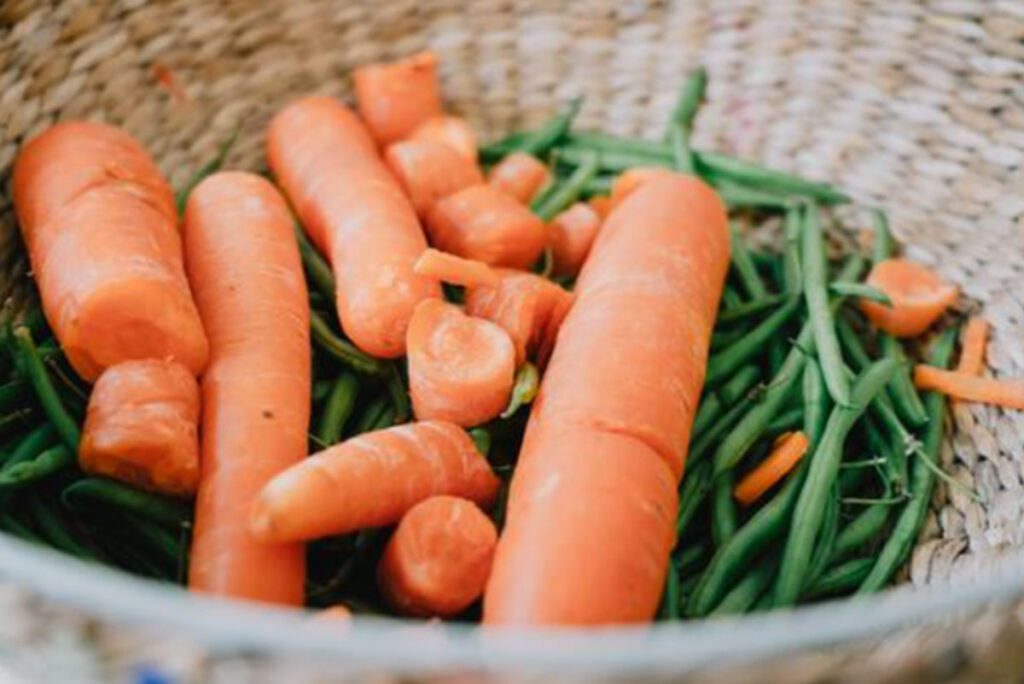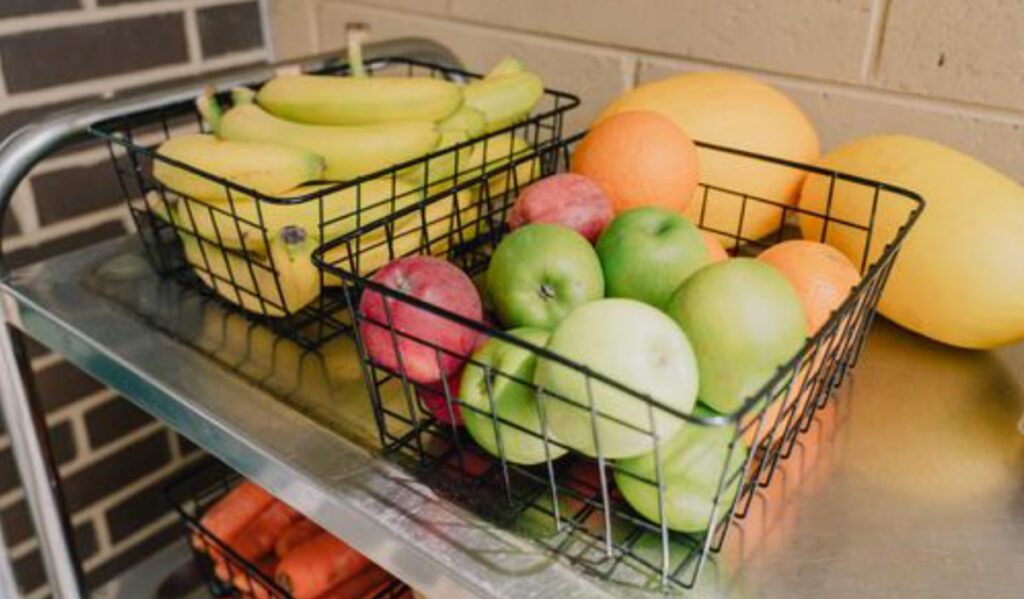Vitamin Angels Pilots Supplementary Feeding Programs
Improving nutrition can improve overall maternal health and birth outcomes and set a child up for a lifetime of success.

Vitamin Angels is a public health nonprofit that brings essential nutrition interventions to underserved communities. We focus on addressing malnutrition in pregnant women, infants, and young children up to age 5 to improve quality of life and increase potential.
We do this through the delivery of effective nutrition interventions that are specifically designed to improve maternal, infant, and young child health in underserved populations. One type of intervention Vitamin Angels is exploring is supplementary feeding—or the provision of nutrient dense and health supportive foods—to mitigate food insecurity in underserved populations and address issues of health equity.
Food Insecurity in the US
According to the United States Department of Agriculture’s (USDA) 2021 report on Food Security in the US, about 13.5 million households are food insecure at some time during the year—this equates to about 1 in 10 households.1 Of households experiencing food insecurity, about 3.8% (5.1 million) had very low food security—this indicates that some household members had reduced or disrupted eating patterns due to limited resources.1 Regarding households who already have children in the home, 6.2% were food insecure, with Black (19.8%) and Hispanic (16.2%) households disproportionately impacted.1 Black households in the US have more than double the rate of food insecurity as white households.1
6.2% of households with children were food insecure in 2021 in the US1
Only about half of households reporting food insecurity received assistance from at least one of the federal nutrition assistance programs, indicating that many food insecure households are not being covered by these protective services.1
Food insecurity is linked to poor diet quality—fewer vegetables, fruits, and milk and greater amounts of sugar-sweetened beverages and fast food.2,3 Families experiencing food insecurity often cite the high cost of fruits and vegetables as being a primary barrier to consuming a healthier diet.2 Food insecurity is linked to poor diet quality—fewer vegetables, fruits, and milk and greater amounts of sugar-sweetened beverages and fast food.2,3 Families experiencing food insecurity often cite the high cost of fruits and vegetables as being a primary barrier to consuming a healthier diet.2

Food insecurity in the US is associated with increased risk of overweight and obesity from childhood.4 Additionally, several negative health outcomes have been found among those experiencing food insecurity during the prenatal/postpartum period including a greater risk of: gestational diabetes, hypertension, obesity, and mental health problems, as well as poor birth outcomes (e.g., low birth weight and birth defects).5,6
Since 2021, Vitamin Angels has piloted a supplementary feeding program aimed at improving diet quality among pregnant women and young children living in underserved communities in the US.
At the core of Vitamin Angels’ success is our ability to collaborate at both the macro-level (working with state and national organizations to understand population-level issues, and to identify those who are underserved by existing social service programs) and the micro-level (working with local community partners who are deeply familiar with the particular challenges within their own communities). This approach helps us to apply public health nutrition best practices in a context-specific way that provides realistic and effective solutions to address and alleviate food insecurity.
A Pilot for Understanding
With generous support from Dalio Philanthropies, Vitamin Angels has individually partnered with a unique cohort of community partners across the US to test different supplementary pilot program strategies to identify the most sustainable supplementary feeding model(s). The first years were devoted to initial learning. As knowledge is gained, we are now iterating on learnings and continuing to explore different distribution models and partner types to see which have the greatest impact on underserved pregnant women, infants, and young children, and the communities in which they live. In the initial stages, Vitamin Angels identified local organizations—serving underserved pregnant women, infants, and children—who are in a unique position to know the context-specific barriers and enablers to nutrition within their community. We then worked to uplift and equip these organizations with the capacity to build effective supplementary feeding programs that work for the populations they serve. After testing and adjusting the programs, Vitamin Angels continues to use our technical abilities to monitor and evaluate key findings. In the final stages, we will use these findings to equip the organization with the tools it needs to seek out and secure the sustainable funding they will need to offer these critical services within their community in years to come.
The unique attribute of Vitamin Angels’ supplementary feeding programs is the technical support we offer (consensus building at the local, state, and national levels, technical expertise in monitoring and evaluation, capabilities in developing networks of community partners, and ability to model funding pathways to continue the service beyond the grant period). Additionally, these programs work to connect local organizations—serving underserved pregnant women, infants, and children—with local farmers, to support the development of supplementary feeding programs that uplift the whole community.

2023
A Focus on Key Partnerships with WIC Clinics
Initial learnings demonstrated that Vitamin Angels’ partnership with USDA’s Special Supplemental Nutrition Program for Women, Infants, and Children (WIC) clinics has high potential for impact. This is due to our combined resources and the knowledge of food safety and nutrition throughout the WIC program. This year, again with support from Dalio Philanthropies, we are supporting four supplementary feeding programs ongoing in 2023.
Each grant recipient represents a unique partner type, distinct program model, and diverse community profile, and presents a varied perspective for addressing challenges and enablers to food security and health equity. This work supports the development of a sustainable model to address food insecurity among communities most at risk, while identifying strategies to support scale-up of the program, whether that be through a local, state, or federal collaboration.

Our US Pilot Programs
Inter Tribal Council of Arizona, Inc.
Vitamin Angels collaborates with the Inter Tribal Council of Arizona to support the purchase of traditional foods from local, community growers and the provision of these foods to WIC families. Through this partnership, we expect to serve 600 pregnant women and 1,000 children under 5 by reducing food insecurity and increasing awareness of the health benefits and nutritional value of traditional foods.
Community Bridges WIC in Santa Cruz County, CA
Through the provision of boxes of seasonal produce, coupled with nutrition education, and recipes/instructions on how to prepare healthful foods, we expect to serve 550 families over 6 months. Overarching goals include decreasing food insecurity among WIC population, improving nutrient content of diets of participating families, and promoting and improving health equity in the region.
Community Health Programs in Berkshire County, Massachusetts
Now in its third year, Vitamin Angels and Community Health Programs in Berkshire County, MA aim to provide 1,800 food bags to nutritionally vulnerable families in the rural Berkshire County area. Each food bag includes items from local farmers and helps to reduce food insecurity among families with young children. We expect to serve 200 pregnant women and 1,000 children under 5 years of age in 2023.
Family Health Council of Central PA
This innovative partnership, now in year two, enables pop-up produce stands at WIC clinics to allow participants to utilize vouchers to purchase fresh produce. Through this renewed grant, we expect to serve 375 pregnant women + 2,850 children from 6 months of age to 5 years old. This partnership also provides matched funds to their farmers market voucher program, allowing families to access even more produce.
References
- 1. USDA. Household Food Security in the United States in 2021 (2022). https://www.ers.usda.gov/publications/pub-details/?pubid=104655
- 2. Mofleh D, Ranjit N, Chuang RJ, Cox JN, Anthony C, Sharma SV. Association Between Food Insecurity and Diet Quality Among Early Care and Education Providers in the Pennsylvania Head Start Program. Prev Chronic Dis. Jun 17 2021;18:E60. doi:10.5888/pcd18.200602
- 3. Duke NN. Adolescent-Reported Food Insecurity: Correlates of Dietary Intake and School Lunch Behavior. Int J Environ Res Public Health. Jun 21 2021;18(12)doi:10.3390/ijerph18126647
- 4. Spoede E, Corkins MR, Spear BA, et al. Food Insecurity and Pediatric Malnutrition Related to Under- and Overweight in the United States: An Evidence Analysis Center Systematic Review. J Acad Nutr Diet. May 2021;121(5):952-978.e4. doi:10.1016/j.jand.2020.03.009
- 5. Morales ME, Epstein MH, Marable DE, Oo SA, Berkowitz SA. Food Insecurity and Cardiovascular Health in Pregnant Women: Results From the Food for Families Program, Chelsea, Massachusetts, 2013-2015. Prev Chronic Dis. Nov 3 2016;13:E152. doi:10.5888/pcd13.160212
- 6. Dolin CD, Compher CC, Oh JK, Durnwald CP. Pregnant and hungry: addressing food insecurity in pregnant women during the COVID-19 pandemic in the United States. Am J Obstet Gynecol MFM. Jul 2021;3(4):100378. doi:10.1016/j.ajogmf.2021.100378
